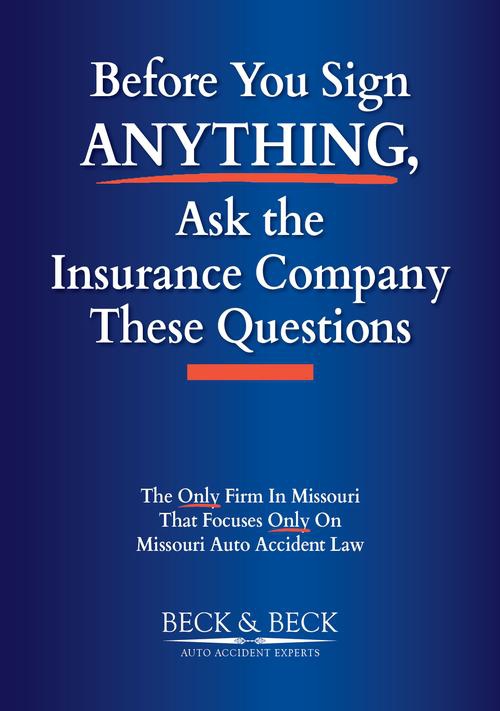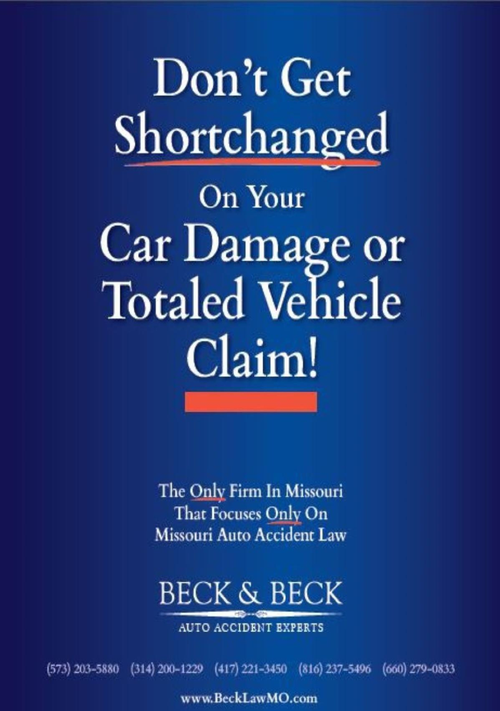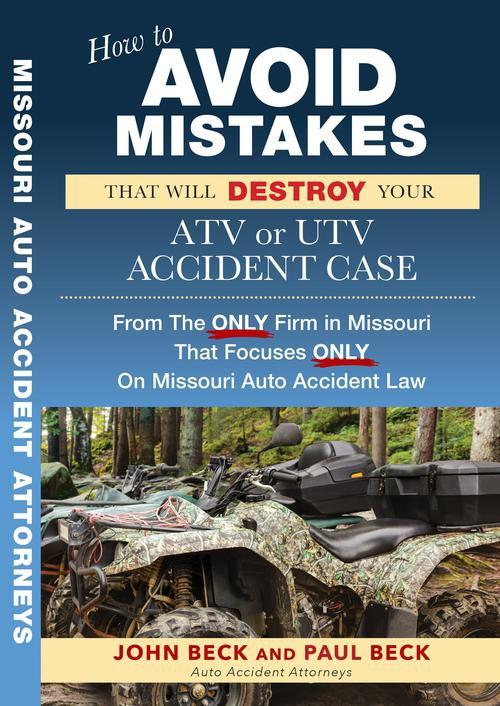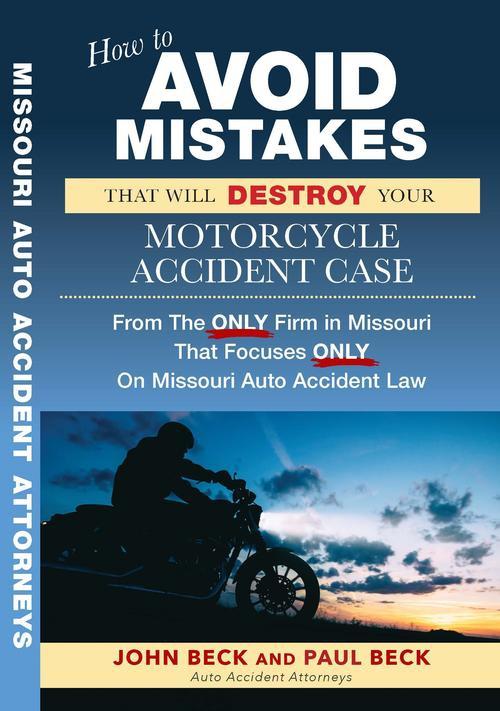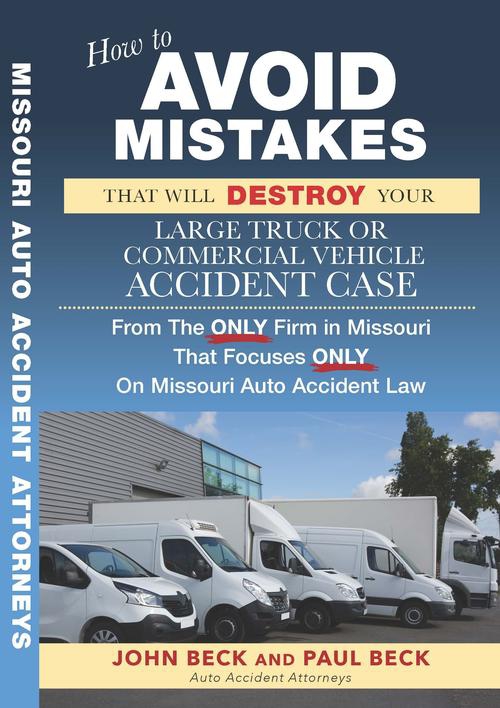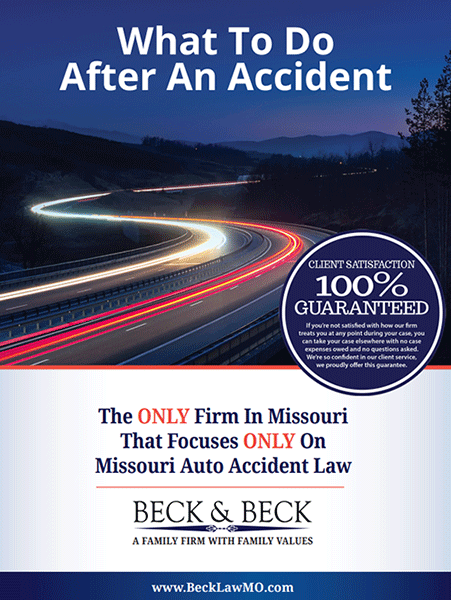When you’re hurt in a motor vehicle crash caused by a negligent driver, you have a right to pursue a settlement that covers your related economic and non-economic damages. However, it’s critical to note that insurance companies may raise various defenses to thwart your car accident claim—and you never want to give them any reason to deny you proper compensation.
This means you have an obligation to mitigate or reduce the amount of potential damages by properly caring for yourself. A Missouri car accident lawyer at Beck & Beck Missouri Car Accident Lawyers can advise you about what steps are essential to prove you’re taking full responsibility for your health as best you can after such a shocking incident.
What is Mitigation in a Personal Injury Case?
By legal definition, “the duty to mitigate refers to a party’s obligation to make reasonable efforts to limit the harm they suffer from another party’s actions.” So after a car accident—even though it wasn’t your fault—you don’t have the option of simply doing nothing and expecting the insurance company to pay for the full extent of your damages. Let’s break this down a bit more.
For example, certain injuries often don’t present symptoms for days or even weeks after the initial trauma. What you might initially pass off as a headache can actually be a more serious concussion. Or an aching lower back might indicate a herniated disc injury. Maybe you have some leg weakness that doesn’t seem to be a big issue but could actually be a sign of more complicated internal organ damage.
It’s not your fault if symptoms of your car accident injuries aren’t always apparent right away. However, there may be a time when you begin to feel or notice them—and if you choose to do nothing or “tough it out”, this might harm both your health and your legal case.
Beck & Beck Missouri Car Accident Lawyers is the only law firm in Missouri that focuses exclusively on auto accidents. Throughout all of our free resources, we always advise people to get prompt medical attention after any type of incident. Why?
- You protect all aspects of your health by getting a thorough medical exam, the beginning of a diagnosis, treatment recommendations, and a schedule for follow-up care.
- You have evidence of accident-related injuries through medical records, prescriptions, assistive devices, and more.
But if you wait too long to see a doctor, and your medical condition grows worse, you may have failed to mitigate your damages.
How an Insurance Company Assesses Mitigation of Damages in Your Claim or Lawsuit
Once you file a claim against the negligent motorist, their insurance company is going to pay very close attention to what you did and when. An insurance adjuster will comb through your medical records and not hesitate to use whatever they can to lessen the amount of compensation requested in your claim—or even deny an offer altogether. This includes, but is not limited to:
- Use their own medical experts to quantify how any perceived inaction on your part made injuries worse.
- Argue that the carrier is only liable for what you should have suffered had you gotten prompt medical attention.
If you file a claim directly with the insurance company, it may raise the matter of damage mitigation right when they extend an initial settlement offer, when explaining the numbers.
If you have to file a lawsuit, the insurer might raise an affirmative defense that you failed to mitigate damages at the outset of your case, right when they answer the allegations contained in your initial complaint.
Failure to Mitigate Damages vs. Contributory Negligence
Another possibility is an adjuster might try to claim you’re partially responsible for the accident—also known as contributory negligence. What’s the difference between these two actions?
- Damage mitigation refers to what we described above and the amount of economic and non-economic damages you’re able to recover. If you’re vigilant about your post-accident medical care and have evidence to that effect, the facts reflect this.
- Contributory negligence is applied when determining responsibility for the accident itself. Missouri uses the legal principle of comparative negligence, in which your damages are reduced by the percentage you were to blame for the accident.
For instance, you’ll receive some form of injury compensation if you’re less than 100 percent responsible for the accident. But if you’re found partially at fault—say 25 percent—the amount of your damages settlement is reduced by that same percentage.
Attorneys Paul Beck and John Beck understand why it’s challenging to understand your full rights and what’s expected of you after a car crash, so keep two things in mind: always take care of your health immediately, and call our office as soon as you can so we can answer all your claim questions and guide you on the next steps to take in the process.
Contact a Missouri Car Accident Lawyer Today
After suffering injuries in a crash that wasn’t your fault, contact one of the experienced car accident lawyers at Beck & Beck Missouri Car Accident Lawyers as soon as possible. It’s always free to call us! Don’t talk to any auto insurance companies about your injuries or medical treatment—it’s important not to be taken advantage of or have your statement misunderstood.
Please feel free to contact us online or call our office directly at 314.200.1229 to schedule a free consultation. We help car accident victims all over Missouri including the cities and communities of Florissant, Columbia, Springfield, Kansas City, St. Louis, Kirksville, Perryville, Union, Kirksville, Cuba, Hillsboro, Potosi, Troy, Doniphan, Steelville, Farmington, Festus, Ironton, and Cape Girardeau.

